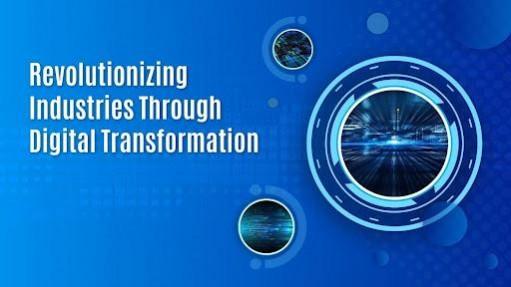
In an era where technological advancements dictate the pace of progress, Kamala Kannan Munusamy Ethirajan has brought to light the transformative potential of digital platforms in reshaping industries. His insights explore the impact of enterprise automation solutions across various sectors, unveiling their ability to enhance efficiency, reduce costs, and optimize workflows.
A New Digital Foundation
The rapid adoption of digital transformation solutions has strengthened businesses' ability to modernize operations efficiently. Cloud-native architectures and AI-driven automation enable seamless transaction processing at scale while ensuring data accuracy and minimizing operational inefficiencies. Integration frameworks have evolved significantly, facilitating streamlined connectivity across systems, reducing development time, and substantially lowering maintenance costs. These advancements empower organizations to operate with enhanced agility, improve service delivery, and drive cost-effective scalability. As a result, businesses can optimize workflows, enhance decision-making, and maintain a competitive edge in an increasingly digital landscape.
Revolutionizing Healthcare Through Automation
The healthcare sector has significantly benefited from digital transformation, with automated scheduling, streamlined workflows, and predictive maintenance optimizing operations. These advancements have notably reduced patient wait times and minimized administrative burdens. AI-powered analytics have improved clinical coordination, enabling healthcare professionals to prioritize patient care while reducing documentation errors and compliance risks. By integrating intelligent automation, healthcare organizations have enhanced efficiency, ensuring seamless operations and improved service quality across medical facilities, ultimately leading to better patient outcomes.
Enhancing Retail Efficiency and Customer Experience
Retail businesses have embraced digital transformation to redefine inventory management, customer engagement, and supply chain operations. The integration of automated workflows has improved inventory accuracy, expedited returns processing, and optimized stock levels. With AI-driven customer service enhancements, response times have been drastically reduced, leading to increased customer satisfaction and loyalty. Real-time performance analytics have further enabled retailers to personalize marketing efforts, resulting in higher engagement and conversion rates.
The Digital Future of Agriculture
Agriculture has entered a new phase of technological integration, leveraging IoT-driven monitoring and AI-powered decision-making systems. Precision farming techniques have enhanced resource management, increasing crop yields while reducing water wastage. Automated irrigation systems and predictive analytics have contributed to optimized nutrient application, reducing dependency on excessive fertilizers and pesticides. The incorporation of real-time sensor data has provided farmers with actionable insights, enabling sustainable agricultural practices.
AI and Automation: The Next Frontier
As industries continue to embrace digital transformation, AI-driven automation is set to become the cornerstone of future advancements. The implementation of virtual agents, natural language processing, and deep learning algorithms has significantly improved service resolution times. Organizations leveraging AI-based decision support systems have witnessed remarkable improvements in operational efficiency, ensuring enhanced security, compliance, and data integrity.
Bridging the Gap with Enterprise Integration
The demand for seamless enterprise integration has never been higher. With businesses managing numerous applications, the role of middleware solutions in unifying diverse systems is critical. The automation of complex workflows has led to a significant reduction in process completion times, enhancing overall business agility. Advanced API management and blockchain-powered security frameworks are further solidifying the foundation for future innovations, enabling businesses to maintain secure and efficient digital operations.
Looking Ahead: The Future of Digital Transformation
The trajectory of digital transformation points towards an era of intelligent automation, where AI, IoT, and blockchain technologies work in unison to drive efficiency. Organizations investing in these technologies are not only optimizing current operations but also future-proofing their businesses against evolving challenges. By harnessing real-time analytics and predictive modeling, industries can unlock unprecedented opportunities for growth and innovation.
In conclusion, Kamala Kannan Munusamy Ethirajan highlights the transformative role of digital advancements in reshaping industries. As businesses navigate the evolving digital landscape, embracing innovative technologies will be crucial to maintaining competitiveness and ensuring sustained success in an increasingly technology-driven world.













!['Valentine's Week in Parliament'? : Saugata Roy, June Malia's cosy conversation amid house session goes viral [Watch]](https://data1.ibtimes.co.in/en/full/828484/valentines-week-parliament-saugata-roy-june-malias-cosy-conversation-amid-house.jpg?w=220&h=138)



